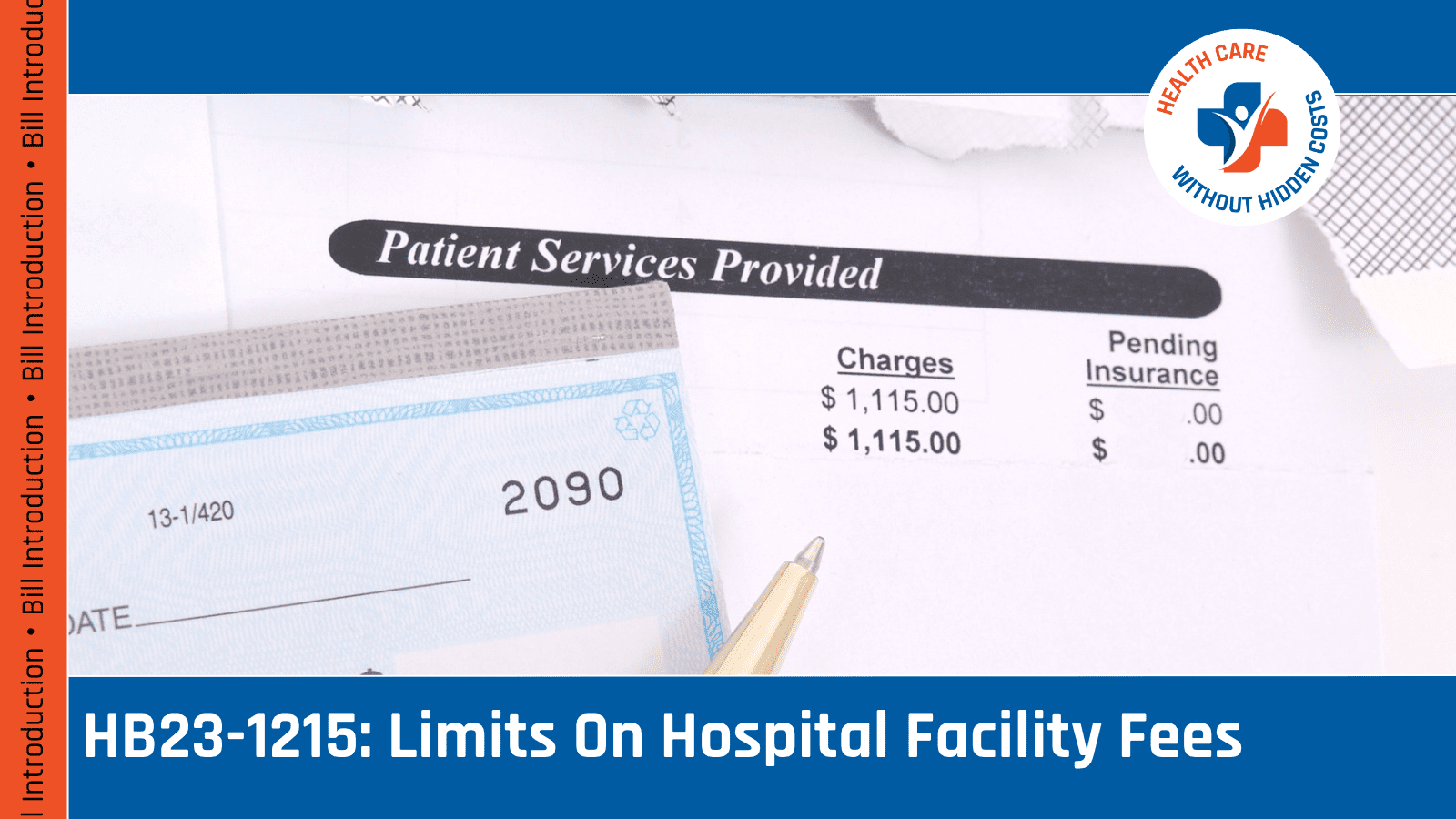Charles Brennan provided testimony in support of House Bill 24-1129, Protections for Delivery Network Company Drivers. CCLP is in support of HB24-1129.
Recent articles
CCLP testifies in support of TANF grant rule change
CCLP's Emeritus Advisor, Chaer Robert, provided written testimony in support of the CDHS rule on the COLA increase for TANF recipients. If the rule is adopted, the cost of living increase would go into effect on July 1, 2024.
CCLP testifies in support of updating protections for mobile home park residents
Charles Brennan provided testimony in support of House Bill 24-1294, Mobile Homes in Mobile Home Parks. CCLP is in support of HB24-1294.
CCLP’s legislative watch for April 5, 2024
For the 2024 legislative session, CCLP is keeping its eye on bills focused on expanding access to justice, removing administrative burden, preserving affordable communities, advocating for progressive tax and wage policies, and reducing health care costs.
Facility Fees Place Coloradans at Risk

On Friday, March 23, 2023, Julia Char Gilbert, CCLP’s Connelly Policy Advocate, provided testimony to the House Health & Insurance Committee for House Bill 23-1215, Limits on Hospital Facility Fees. CCLP is in support of HB23-1215.
Dear Madame Chair, Mr. Vice Chair, and Committee Members:
Thank you for the opportunity for the Colorado Center on Law and Policy (CCLP) to submit written testimony in strong support of House Bill 23-1215, Limits on Hospital Facility Fees. CCLP is a nonprofit organization dedicated to the fight against poverty in Colorado. As part of this work, CCLP fights to promote access to affordable health care for low-income Coloradans. Facility fees are concerning to CCLP because high, unexpected out-of-pocket medical costs threaten households’ economic stability and prevent Colorado patients from accessing needed health care.
Coloradans need and deserve more transparency and guardrails when it comes to health care costs. The majority of Coloradans report uncertainty about their ability to pay for even routine health care expenses.[i] And nearly 4 in 10 Americans report they would not be able to cover an unexpected $400 expense without taking measures such as incurring credit card debt or borrowing money from friends or family.[ii] Facility fees routinely exceed $400, placing everyday Coloradans at risk of financial distress and its many cascading impacts.
Further, despite inflation and fluctuations in the market, Colorado hospitals’ finances remain remarkably healthy, according to data from the Colorado Department of Health Care Policy and Financing published earlier this year.[iii] In Q3 of 2022, Colorado hospital systems reported robust cash-on-hand reserves, including Centura Common Spirit ($15.2 billion), Centura Advent ($6.3 billion), SCL/Intermountain ($11.1 billion), Banner Health ($8.7 billion), and UCHealth ($5.1 billion). The size of these reserves — even following a decrease in profits in 2022 due to investment losses felt across industries — can be attributed to the staggeringly high profits that Colorado hospitals, including nonprofit hospitals, have reported in recent years. For example, in 2021, in the midst of the COVID-19 pandemic, nonprofit hospital Centura Common Spirit reported $3.0 billion in profits; SCL reported $2.2 billion in profits; and UCHealth reported $1.1 billion in profits. These data indicate that it simply not necessary for hospitals to charge patients facility fees for preventative care visits and telehealth visits in order to “keep the lights on.”
HB23-1215, with its proposed amendments, would gather critical data about facility fees, promote transparency in a uniquely opaque industry, and establish common-sense protections from unexpected fees charged for telehealth and preventative services. The bill is an important step towards a health care system that works for working Coloradans.
CCLP emphatically urges the Committee to vote yes on HB23-1215. Thank you for your time and attention.
Sincerely,
Julia Char Gilbert
Connelly Policy Advocate
Colorado Center on Law and Policy
[i] Perry Undem and Robert Wood Johnson Foundation. Results from a Statewide Survey: How Coloradans Feel about Affordability and Healthcare Reform. March 2022. https://cohealthinitiative.org/wp-content/uploads/2022/03/CO-affordability-survey-brief-2022.pdf
[ii] Board of Governors of the Federal Reserve System. Dealing with Unexpected Expenses: Report on the Economic Well-Being of U.S. Households in 2019. May 2020. https://www.federalreserve.gov/publications/2020-economic-well-being-of-us-households-in-2019-dealing-with-unexpected-expenses.htm
[iii] Colorado Department of Health Policy & Financing. Hospital Insights Bulletin 2023. January 2023. https://hcpf.colorado.gov/sites/hcpf/files/Hospital%20Insights%20Bulletin%202023.pdf
HB23-1215 was signed into law on May 30, 2023.





